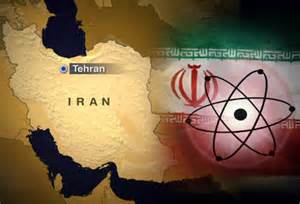ID :
343872
Thu, 10/09/2014 - 14:42
Auther :
Shortlink :
https://oananews.org//node/343872
The shortlink copeid
US Hardliners Missing Point On Iran

Tehran, Oct 9, IRNA - Given that the strategic and political price of failure has risen dramatically, what is most needed now from both Tehran and Washington is a readiness to secure compromises that could ultimately have a positive impact on reshaping the course of Iranian politics, underscored 'Iran Daily' on Thursday.
The English-language paper in its Opinion column was referring to the remarks of Daniel Brumberg, special adviser at the United States Institute of Peace in Washington and co-director of Democracy and Governance Studies at Georgetown University.
Elucidating on the November 24 deadline for a deal over Iran’s nuclear program, Brumberg said, Washington seems fixated on the technical details of what an agreement should look like: the types of centrifuges Iran might be able to keep, for example, or the level of low-enriched uranium it could stockpile. But as important as these discussions are, the focus on mechanics risks missing a bigger and arguably more important reality: That the negotiations are central to the future of Iran’s political system.
The failure to address this crucial question could come back to haunt us, the paper quoted him as saying.
If the United States is serious not just about placing significant (if imperfect) limits on Iran’s nuclear program, but also encouraging a political dynamic that strengthens reform-minded Iranian leaders and fosters a more cooperative Iranian foreign policy abroad, then Washington should make every reasonable effort to seal a comprehensive nuclear deal and secure Congress’ support for it, Brumberg said.
The alternative – insisting on imposing onerous terms that would virtually assure Iran’s quitting the negotiations – would simply bolster Iran’s hardliners, while making it far easier for Tehran to pursue a nuclear program largely free of international supervision. To turn the popular Washington refrain on its head, no agreement is far worse than a mutually agreeable if imperfect agreement.
The reality is that ultra-hardliners in Iran have always feared that the narrowest of openings could eventually create a flood of political change. From the outset they tried to stir up trouble for Iranian President Hassan Rouhani and his allies, and have no doubt been preparing to escalate their efforts, said Brumberg.
Indeed, Rouhani’s opponents appear to want the talks to collapse in hopes of extinguishing hope the reformist movement will be able to make a comeback in the 2016 parliamentary elections.
A consideration of such internal political struggles might surprise some commentators and lawmakers in Washington, where many have embraced the dubious notion that there is no fundamental difference of opinion between Tehran’s hardliners and those Iranian leaders now engaged in a potentially risky struggle to redefine the political orientations.
Should such calculations have any bearing on the positions of US negotiators? Of course, their chief mission is to concentrate on the intricate technical issues that must still be sorted through to reach a deal. But policy makers should also not ignore the wider political questions that are at stake here.
To insist on positions that might pacify the most zealous domestic opponents of an agreement but which would discredit Rouhani and his domestic allies would do grave damage to long-term US interests. What we should do instead is reach for an agreement that narrows the parameters of Iran’s nuclear program while helping to create conditions favorable to broader political debate in Iran. Striving for this sweet spot may be difficult, but it is better than the alternatives.
A collapse of negotiations might not produce an immediate political calamity for Rouhani. But in the medium and long term it will surely bolster Tehran’s hardliners. Moreover, failed negotiations would anyway give hardliners a victory by making it impossible for the United States to secure long-term international monitoring of, and safeguards on, Iran’s nuclear program – Iranian leaders could declare that Tehran has permanently given up enriching 20% uranium, while assuring the international community that it will limit low-enriched uranium purely for purposes of domestic energy “needs.”
Such a Plan B could erode the international consensus over sanctions, leaving the United States with no good options and Iran’s hardliners sitting pretty.
And what of the other alternatives? History clearly shows that sanctions can get Tehran to the negotiating table, but will not compel Iranian leaders to capitulate to demands they deem contrary to Iranian interests. As for military action, the consensus among US military leaders and strategists seems to be that any effort to significantly damage or reverse Iran’s nuclear program would require weeks or months of sustained bombing – in effect another war, the outcome of which would be far from certain. And, with the Islamic State of Iraq and Syria on the march, the last thing the United States should be thinking about doing is adding to the regional chaos.
If there was ever a time for bold and visionary leadership on both sides, that time is now, Brumberg stressed.
**Brumberg's above-stated views, published first by CNN, are his alone./end





